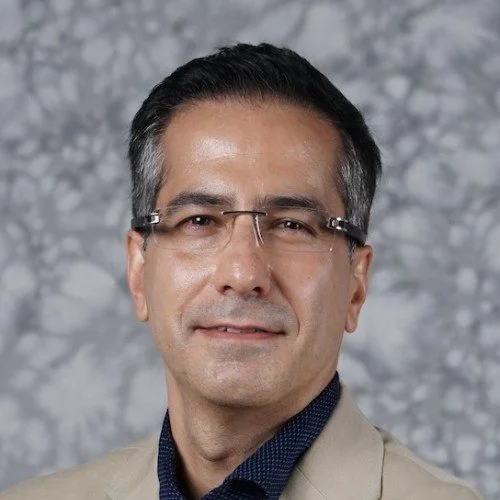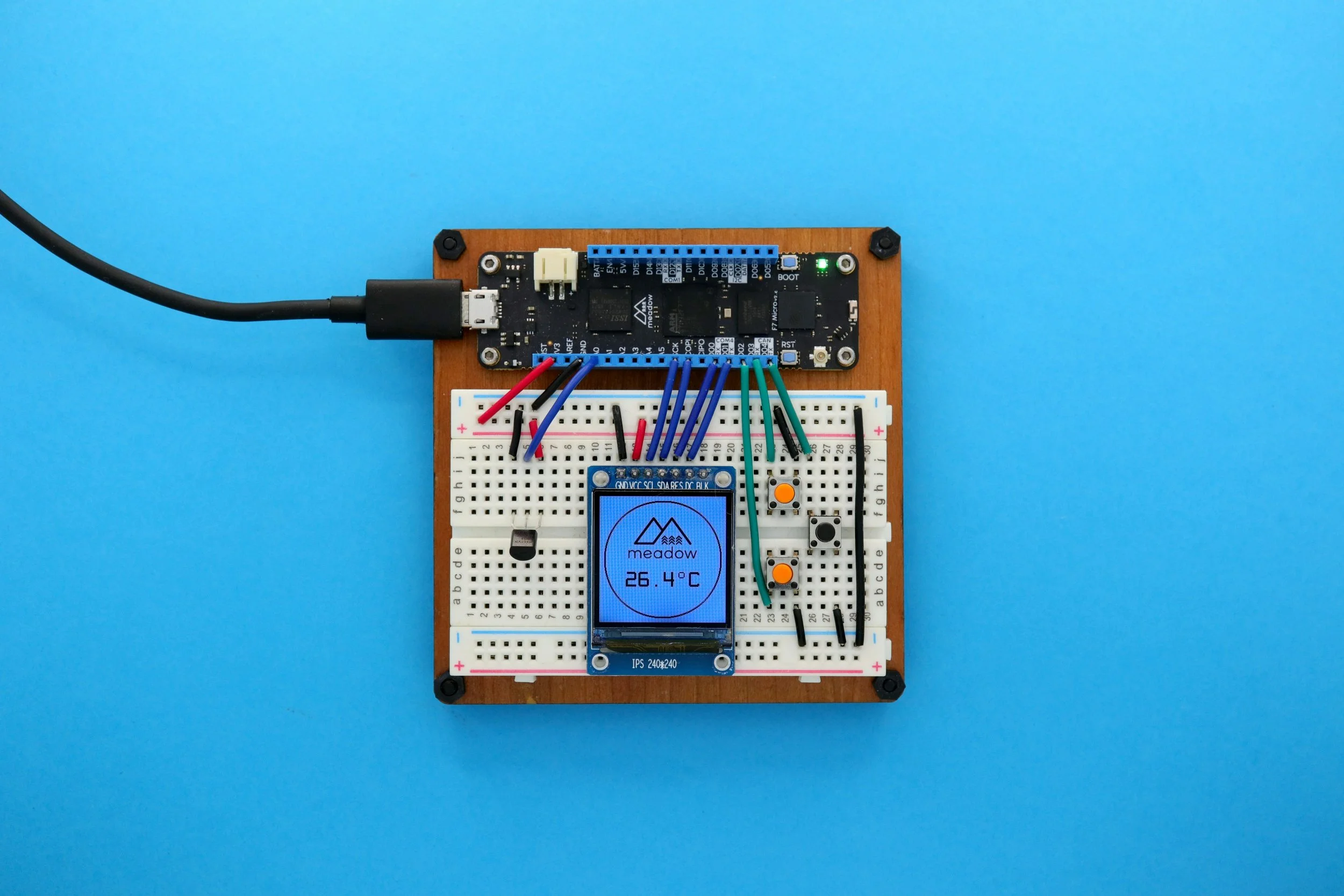It Is Time for a New Yamacraw: Revitalizing Atlanta’s Hardware Tech Scene
When the Yamacraw initiative launched in 1999, it set Georgia on a trajectory to become a tech leader in broadband and semiconductor technology. A collaboration between academia, industry, and government, Yamacraw aimed to attract tech companies and spur innovation, culminating in the creation of Tech Square — a vibrant hub for entrepreneurship and research. Today, nearly 25 years later, experts like Professor Farrokh Ayazi from Georgia Tech say it is time for another Yamacraw-like initiative to reignite Atlanta's hardware tech scene and reclaim the momentum the city once had.
Professor Farrokh Ayazi is a leading expert in micro-electromechanical systems (MEMS) and a professor at Georgia Tech’s School of Electrical and Computer Engineering. Known for his pioneering work in precision sensors and microsystems, Ayazi was named a Regents’ Entrepreneur in 2022 and has been with Georgia Tech for 25 years. He has contributed to developing cutting-edge technologies in MEMS, inertial microsensors, and integrated circuits. His insights into both research and the state of the tech ecosystem make him an authoritative voice on the challenges and opportunities facing hardware innovation in Atlanta.
“Tech Square used to be the place to be for hardware,” Ayazi reminisces. “It was a dynamic ecosystem where work, learning, and innovation happened side by side.” In its early days, Tech Square fostered an entrepreneurial spirit that permeated startups and corporations alike, particularly in the hardware sector. The innovation ecosystem was firing on all cylinders — research, commercialization, and job creation in advanced technologies were thriving. But as Ayazi points out, “the hardware scene today isn’t as vibrant as it once was.”
Being extremely business-friendly and one of the fastest-growing cities in the US, Austin is becoming a competing force even with places like Silicon Valley. (Image: Ryan Duffy/Unsplash)
Where Did the Energy Go?
The decline in Atlanta’s hardware innovation can be traced back to stagnation in entrepreneurial energy, particularly when compared to booming sectors like fintech and software. “While fintech remains strong in Atlanta, hardware is lagging behind,” Ayazi notes. According to him, the main issue isn’t a lack of talent — Georgia Tech and Emory produce some of the best talent in the world in areas like biomedical engineering and computer engineering — but a lack of support on the business side.
“Anyone interested in hardware in Atlanta eventually leaves for places like Silicon Valley, Boston, or Austin. There’s little appetite for local hardware investment,” Ayazi explains. Hardware development, which requires more capital and infrastructure than software, often faces barriers in securing funding, as venture capital tends to flow out of the state. This exodus of talent and startups is exacerbated by the fact that there are not many local venture capital firms focused on serious investments in hardware technology.
For Atlanta to diversify its tech economy beyond fintech and software, it will need more targeted funding for hardware innovation. (Image: Jorge Ramirez/Unsplash)
An Imbalance in the Ecosystem
Atlanta’s hardware scene faces an ecosystem imbalance. While universities like Georgia Tech are exceptional in research, the pathway from lab to market is less clear. Unlike tech hubs such as Boston or Austin, where scientists and business professionals work together to commercialize research, Atlanta struggles with creating that vital connection. “We’re not providing a growth ecosystem for our hardware graduates to be entrepreneurs as we once did,” says Ayazi, highlighting a shift away from risk-taking, particularly in hardware.
Ayazi advocates for organic collaborations that bring scientists, business leaders, venture capitalists, and government officials into shared spaces to stimulate commercial ventures.
Ayazi believes that Atlanta is at a pivotal moment where the city could benefit immensely from another Yamacraw-like initiative. The CHIPS and Science Act of 2022, which provided federal funding to boost domestic research and manufacturing of semiconductors, is a step toward reducing reliance on foreign manufacturing. However, Ayazi suggests that state or local actions could further bolster Atlanta’s hardware sector.
“We need significant investment in hardware and chip companies if we want to promote commercialization and long-term capital investment,” he asserts. As seen in the original Yamacraw program, government support is critical to revitalizing Atlanta’s hardware ecosystem. A modern-day Yamacraw initiative could focus on fostering collaborations between academia, industry, and government to build infrastructure for hardware startups and attract the right kinds of investors.
With greater business support and investment, Atlanta’s strengths and potential position it as one of the most promising cities for hardware and tech innovation. (Image: Stephen Cook/Unsplash)
Why Atlanta, and Why Now?
Atlanta has several advantages that make it a strong candidate for a hardware resurgence. For one, its cost of living is lower than that of other tech hubs like Silicon Valley, making it a more affordable location for startups and talent. Second, with top-tier talent from Georgia Tech, Morehouse, Georgia State, Spelman, and Emory, the potential for hardware innovation is high. According to Ayazi, the only missing ingredients are robust business support and venture capital willing to take risks on hardware startups.
“We’re not at the level we have the potential to be,” says Ayazi, pointing to the growing imbalance between technical innovation and business support. Fixing this gap would allow Atlanta to easily catch up with hubs like Austin and Boston.
A Call for Action
The hardware scene in Atlanta — and, by extension, Tech Square — needs a reboot. The city has the potential, the talent, and the infrastructure to become a hub for hardware innovation once again. What it needs now is investment, both in terms of capital and collaboration. A new initiative focused on hardware, chips, and commercialization could breathe new life into Atlanta’s tech ecosystem, helping it reach its full potential. Significant opportunities are emerging in biomedical, quantum, and environmental engineering that require hardware innovations and investment.
As Professor Ayazi puts it, "Tech Square could thrive with a vibrant hard tech and deep tech scene." All it needs is a nudge in the right direction — and the time for that nudge is now.



